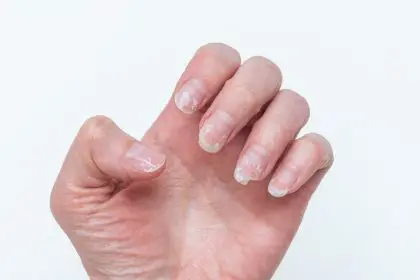Remember when Americans were downing 54 gallons of regular soda per year? Those days are fading faster than a forgotten can of cola in the sun, as health-conscious consumers are now obsessing over something entirely different: prebiotic sodas. This fizzy phenomenon isn’t just another wellness trend, it’s completely reshaping what we expect from our carbonated beverages.
The science behind your favorite drink
If you’re wondering what makes these sodas special, it’s all about what’s happening in your gut. Unlike traditional sodas that basically dump a sugar truck into your system, prebiotic sodas come packed with special fibers that feed the good bacteria living in your digestive system. Think of it as sending a gourmet meal to your gut’s tiny inhabitants.
The magic happens when these specialized fibers, known as prebiotics, make their way through your digestive system. They act like a premium buffet for the beneficial bacteria that call your intestines home. These helpful microorganisms then flourish and multiply, contributing to better digestion, improved immune function, and potentially even enhanced mood regulation through the gut-brain connection.
Gone are the days when your only choices were cola or lemon-lime. Today’s prebiotic sodas are serving up flavor combinations that sound more like a fancy cocktail menu:
- Classic revivals like grape and lemon-lime getting a healthy makeover
- Exotic blends featuring guava rose that make your taste buds dance
- Unusual combinations like raspberry lychee that keep things interesting
- Traditional favorites reinvented with significantly less sugar
What’s particularly fascinating is how these brands are revolutionizing the flavor creation process. Instead of relying on artificial sweeteners and synthetic flavors, many prebiotic soda makers are turning to natural botanical extracts, real fruit juices, and innovative fermentation processes to create complex taste profiles that rival traditional sodas.
The numbers that are making big soda sweat
If you think this is just another passing fad, the sales figures might change your mind. Between April 2022 and April 2023, these gut-friendly fizzy drinks saw their sales explode by 210 percent in the United States. That’s the kind of growth that makes traditional soda companies nervous and investors excited.
The surge in popularity isn’t limited to just one demographic either. While millennials and Gen Z are leading the charge, even baby boomers are getting in on the action, seeking healthier alternatives to their longtime soda habits. Market analysts predict this trend will continue its upward trajectory, with some forecasting the global prebiotic soda market to reach unprecedented heights by 2025.
What’s actually going on in that trendy can
While everyone’s going crazy for these drinks, it’s worth knowing what you’re actually getting. These sodas pack a decent fiber punch through ingredients like inulin, but they’re not exactly a miracle in a can. Sure, they’re better than regular soda, but they shouldn’t replace the fiber you get from actual food.
The innovation doesn’t stop at prebiotics either. Many brands are incorporating additional functional ingredients like apple cider vinegar, green tea extract, and various botanical compounds. These additions are carefully selected to complement the prebiotic benefits while adding their own potential health advantages to the mix.
The social media sensation
It’s hard to scroll through social media without seeing someone raving about their favorite prebiotic soda. Take Poppi, for instance, after their Shark Tank appearance, they didn’t just grow, they exploded. With sleek packaging and marketing that speaks to health-conscious millennials and Gen Z, they’re leading a revolution in how we think about carbonated beverages.
The success of these brands on social media platforms isn’t just about good marketing. It’s about creating a community of health-conscious consumers who share their experiences, recipes, and lifestyle tips. Many prebiotic soda brands have masterfully tapped into this desire for connection, creating engaging content that goes beyond just selling a product.
What health experts want you to know
Before you replace your entire liquid intake with prebiotic sodas, here’s the reality check: while these drinks can be a fun way to get extra fiber, they shouldn’t be your only source. Think of them as a supporting actor in your gut health story, not the main character. Your best bet is still loading up on fruits, vegetables, and whole grains for your fiber needs.
Nutritionists and dietitians emphasize the importance of understanding that these beverages, while potentially beneficial, should be part of a broader approach to gut health. They recommend focusing on a varied diet rich in naturally fiber-filled foods, staying properly hydrated, and maintaining regular physical activity for optimal digestive health.
The future of fizzy refreshment
As we look ahead, the prebiotic soda market shows no signs of slowing down. Manufacturers are continuously innovating, developing new flavors and incorporating additional functional benefits. Some are exploring sustainable packaging options, while others are working on reducing their carbon footprint through local sourcing and production.
The evolution of these beverages reflects a broader shift in consumer consciousness about health and wellness. People aren’t just looking for refreshment anymore, they want their beverages to serve a purpose, whether that’s supporting gut health, boosting immunity, or providing sustainable energy.
The future of fizzy drinks is looking decidedly different from what previous generations knew. While prebiotic sodas might not be the answer to all our dietary needs, they’re certainly shaking up the beverage industry in ways that suggest they’re here to stay. As consumers become more health-conscious and brands continue to innovate, we might be witnessing the early days of a complete transformation in how America gets its fizzy fix.
Just remember, whether you’re sipping on a guava rose prebiotic soda or sticking to plain water, the key to good health isn’t found in a single beverage, but in maintaining a balanced diet and lifestyle. Though if you’re going to reach for a carbonated drink, at least now you know there are options that might actually do your gut some good.














